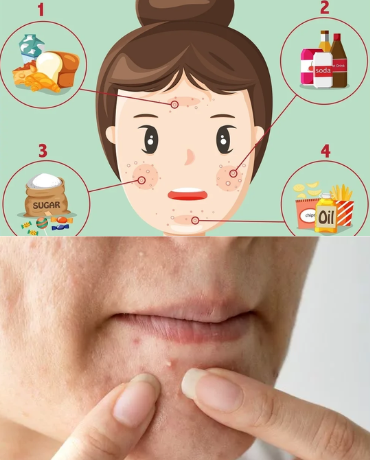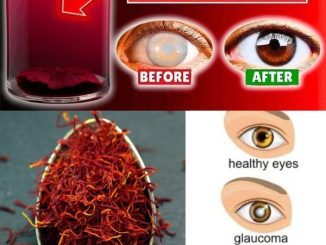
Understanding Acne: More Than Just a Skin Problem
Acne isn’t just about clogged pores or oily skin — it’s a complex condition influenced by multiple factors. Excess oil, dead skin cells, and bacterial overgrowth are the usual suspects. But hormones play a huge role too. When androgen hormones increase, they stimulate your oil glands, making breakouts more likely. Add inflammation into the mix, and you’ve got the perfect recipe for acne. Interestingly, what you eat — especially sugar — can tip the balance and make acne worse.
How Excess Sugar Damages Your Skin
We often think of sugar as just empty calories, but it does far more damage beneath the surface. When you consume sugary foods or refined carbs, your blood sugar spikes rapidly. This surge leads to an increase in insulin — the hormone responsible for regulating glucose. Elevated insulin doesn’t just handle sugar; it also stimulates hormones that ramp up oil production. More oil equals more clogged pores, which often means more breakouts.
On top of that, sugar triggers inflammation throughout the body. Inflammation makes acne angrier, redder, and more painful. And let’s not forget collagen and elastin — the proteins that keep skin firm and youthful. Sugar accelerates their breakdown, leading not only to premature wrinkles but also slower acne scar healing.
The Science of Sugar and Acne
Research keeps pointing to the same conclusion: high sugar diets make acne worse. A study in JAMA Dermatology found that people who consumed a lot of sugary foods had a 54% higher chance of experiencing moderate to severe acne. Another clinical trial published in The American Journal of Clinical Nutrition showed that switching to a low-glycemic diet reduced acne lesions significantly within just 10 weeks. The science is clear — sugar doesn’t just mess with your waistline; it messes with your skin too.
Video : The Truth About Food, Diet and Acne | Lab Muffin Beauty Science
How Sugar Sparks Breakouts
- Blood sugar spikes: Sugary meals send glucose soaring, forcing the pancreas to release a flood of insulin. This increase boosts androgen hormones, which in turn stimulate oil glands.
- Inflammation overload: Sugar promotes the release of cytokines — pro-inflammatory molecules that make breakouts red, swollen, and more severe.
- Gut-skin connection: A diet high in sugar disrupts the gut microbiome, fueling harmful bacteria. This imbalance increases inflammation and allows toxins to leak into the bloodstream, which can show up as acne.
- Glycation and aging: Sugar binds to collagen and elastin through a process called glycation. This makes skin fibers stiff, weak, and more prone to wrinkles while also slowing the healing of acne scars.
High-Glycemic vs. Low-Glycemic Foods
Not all carbs are created equal. The glycemic index (GI) ranks foods based on how quickly they raise blood sugar. High-GI foods cause sharp spikes, while low-GI foods keep things steady.
- High-Glycemic Foods to Avoid: White bread, white rice, pasta, sugary drinks, candies, pastries, chips, and sweetened cereals.
- Low-Glycemic Foods to Embrace: Whole grains like quinoa and oats, fresh vegetables like spinach and broccoli, low-sugar fruits like berries and apples, nuts, seeds, and lean proteins such as fish, lentils, and chicken.
Making this switch doesn’t just help your skin — it improves overall energy levels, balances hormones, and reduces long-term health risks.
Simple Ways to Cut Back on Sugar for Clearer Skin
If you’re battling stubborn acne, adjusting your diet may be the missing piece. Here are some easy, practical tips to reduce sugar without feeling deprived:
- Read food labels carefully: Sugar hides under names like fructose, sucrose, corn syrup, and maltose.
- Choose natural alternatives: Use raw honey, stevia, or monk fruit in moderation instead of refined sugar.
- Stay hydrated: Replace sodas and energy drinks with water or herbal tea. Your skin will thank you.
- Balance your meals: Pair protein and healthy fats with carbs to slow sugar absorption and keep insulin levels steady.
- Up your fiber intake: Fiber-rich foods like lentils, whole grains, and leafy greens slow digestion and prevent sugar crashes.
- Practice mindful eating: Pay attention to cravings and learn to satisfy your sweet tooth with fruit instead of processed desserts.
Video : The Hidden Link Between High Insulin and Acne
The Bottom Line: Does Sugar Really Cause Acne?
While sugar may not be the sole cause of acne, it’s clear that a diet high in refined carbs and sugar makes breakouts worse. It increases oil production, fuels inflammation, disrupts the gut, and weakens collagen — all of which contribute to acne and premature aging.
The good news? Small dietary changes can lead to big improvements in your skin. By swapping high-glycemic foods for nutrient-rich, low-glycemic options, you give your body the chance to heal and your skin the support it needs. Pair these healthy choices with a consistent skincare routine, and you’ll be on your way to clearer, healthier, and more radiant skin — from the inside out.


